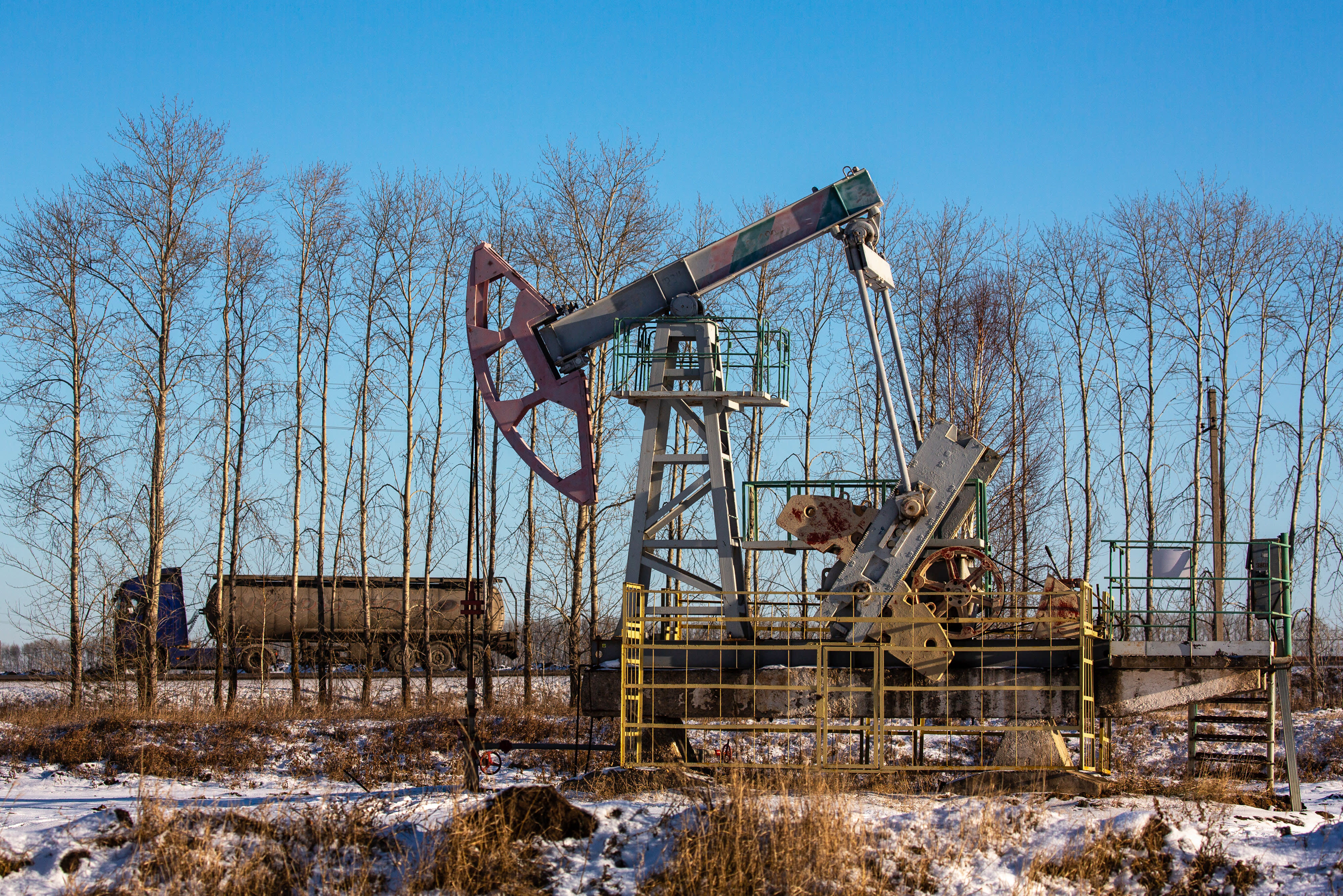Products You May Like
Oil prices jumped Sunday evening after the U.S. and Western allies imposed sanctions on specific Russian banks, prompting fears that energy supplies will be indirectly affected.
Brent crude, the international oil benchmark, rose by as much 7% to trade as high as $105 per barrel. West Texas Intermediate crude futures, the U.S. benchmark, also gained as much as 7% to trade above $98 per barrel.
Both contracts broke above $100 on Thursday for the first time since 2014 after Russia invaded Ukraine. However, the initial spike was somewhat short lived with WTI and Brent retreating throughout Thursday’s session and into Friday’s trading after the White House’s first round of sanctions did not target Russia’s energy system.
On Saturday, the U.S., European allies and Canada said they would disconnect specific Russian banks from the Society for Worldwide Interbank Financial Telecommunication, or SWIFT.
“This will ensure that these banks are disconnected from the international financial system and harm their ability to operate globally,” the global powers wrote in a joint statement announcing the retaliatory measure.
Russia is a key oil and gas supplier, especially to Europe. While the latest round of sanctions do not target energy directly, experts say there will be significant ripple effects.
“The various banking sanctions make it highly difficult for Russian petroleum sales to occur now,” said John Kilduff, partner at Again Capital. “Most banks will not provide basic financing, due to the risk of running afoul of sanctions.”
Russian president Vladimir Putin could also decide to retaliate against the U.S. and allies’ action by weaponizing energy and turning off the taps directly.
“[W]e do think a number of Western firms may decide that it is not worth the risk of continuing to do business with Russia given the uncertainty about enforcement and the trajectory of future coercive action,” RBC said Sunday in a note to clients.
OPEC and its oil-producing allies, which include Russia, are set to meet this week to determine the group’s production policy for April. The oil alliance has been increasing output by 400,000 barrels per day each month as it unwinds the historic production cuts of nearly 10 million barrels per day implemented in April 2020 as the pandemic took hold.
The group, as well as worldwide producers including the U.S., have kept oil supply in check as demand rebounded. Oil prices have been steadily climbing higher, with Russia’s invasion the catalyst that pushed crude above $100.
Consumers are feeling the impacts in the form of higher prices at the pump. The national average for a gallon of gas stood at $3.60 per gallon on Sunday, according to data from AAA. The White House has said it’s working to alleviate the burden for Americans.
“Although the sanctions are still being crafted to avoid energy price shocks, we believe this aggressive-but-not-maximalist stance may not be sustainable, with disruptions to oil and gas shipments looking increasingly inevitable,” Evercore ISI wrote in a note to clients.
“Russia is casting a long, dark, unpredictable, and very complicated shadow. The biggest potential negative from this for the US economy is a surge in oil prices,” the firm added.
